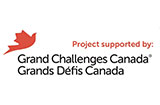Being India is an international initiative to understand the mental health and wellbeing needs of young people in India and identify priority areas for intervention.
Why Being India?
India has over 350 million young people aged 10-24 years, representing the single largest concentration of young people anywhere in the world.
Anxiety and depression account for one-third of the total burden of disease in adolescents. Furthermore, suicide is the leading cause of death for young people in India. According to the National Crime Records Bureau, deaths by suicide are increasing annually in India, where young people are particularly vulnerable. In 2021,34.5% of all deaths by suicide were by young people between the ages of 18 to 30.
Despite the concerning statistics, fewer than 10% of young Indians have access to formal mental health services. The transitional stage of development between childhood, or adolescence to adulthood is critical for early intervention as it holds implications for long-term wellbeing.
Thus, Being India aims to better understand the factors that influence youth mental health and wellbeing in India and identify contextual solutions to address these needs. Being India is a part of Being, an international initiative to examine the youth mental health landscape in 13 priority countries and identify actionable solutions and opportunities to improve wellbeing.
Our project maintains a national focus on India and a regional focus on Odisha and Rajasthan.
How are we addressing the issue?
To examine the youth mental health ecosystem in India, we are working in partnership with Sangath’s Addictions and related Research Group (ARG), Goa, and have strategically employed a comprehensive, multi-level and interdisciplinary approach.
Key project activities include:
- A country wide desk review on youth mental health and initial interviews with experts to examine the existing knowledge base (and inherent gaps) on youth mental health
- Youth engagement initiatives and programmes to capture perspectives from young people through i) a multi-language national-level youth survey and ii) intensive photovoice workshops in the states of Odisha and Rajasthan. Photovoice is an exploratory research methodology where participants use pictures and facilitated discussions to provide insight into their unique life experiences
- Targeted consultative interviews with diverse stakeholders working on youth wellbeing to address gaps in information
- Focused consensus-building workshops in Jaipur and Bhubaneshwar to bring together stakeholders working on-ground and arrive at actionable solutions for youth mental health
Additionally, through the project we set up a Youth Advisory Board (YAB) to provide feedback on project activities and findings to ensure our work is relevant, accessible and comprehensive.
What is the potential impact?
Through the project activities and findings, we expect the following impact:
- A comprehensive understanding of the existing gaps, solutions and opportunities in the domain of youth mental health in India
- Strengthened national and regional networks for future collaboration and advocacy on youth mental health
Where have we reached?
Between April to November 2023, the Being India team undertook a range of activities, including:
Desk review
A review of key issues faced by young people in India through preliminary desk review of academic articles, reports and white papers.
Youth engagement
- We established a youth advisory board (YAB) of 9 members from diverse backgrounds and different tiers of cities. Our YAB members were regularly consulted to review and reflect youth perspectives in project outputs
- We engaged with 20 young people through the photovoice workshops in Odisha and Rajasthan. The activity was a week-long process including a day-long training, data collection and focus group discussions.
- We launched a national-level youth survey to capture diverse insights from young people in India. It was conducted in English, Hindi, and Odia and reached over 560 young people through online dissemination.
Expert consultations and interviews
We engaged with 43 experts working in the youth mental health domain from government departments, civil society organisations, executive agencies, funders, private sector organisations, and digital mental health platforms.
Consensus building workshop
The project activities culminated with state-level workshops in Odisha and Rajasthan. Participants included key stakeholders at the state-level, including nodal authorities for health and education, representatives from civil society organisations, and the private sector. Highlights from the workshops in Odisha and Rajasthan are linked here, and here.
Public Good Report
Project Leads
Principal Investigators
Soumitra Pathare, Centre for Mental Health Law & Policy, ILS, Pune
Abhijit Nadkarni, Sangath ARG, Goa
Funders & Partners
Funded by
Grand Challenges Canada
Partners
Sangath ARG, Goa

